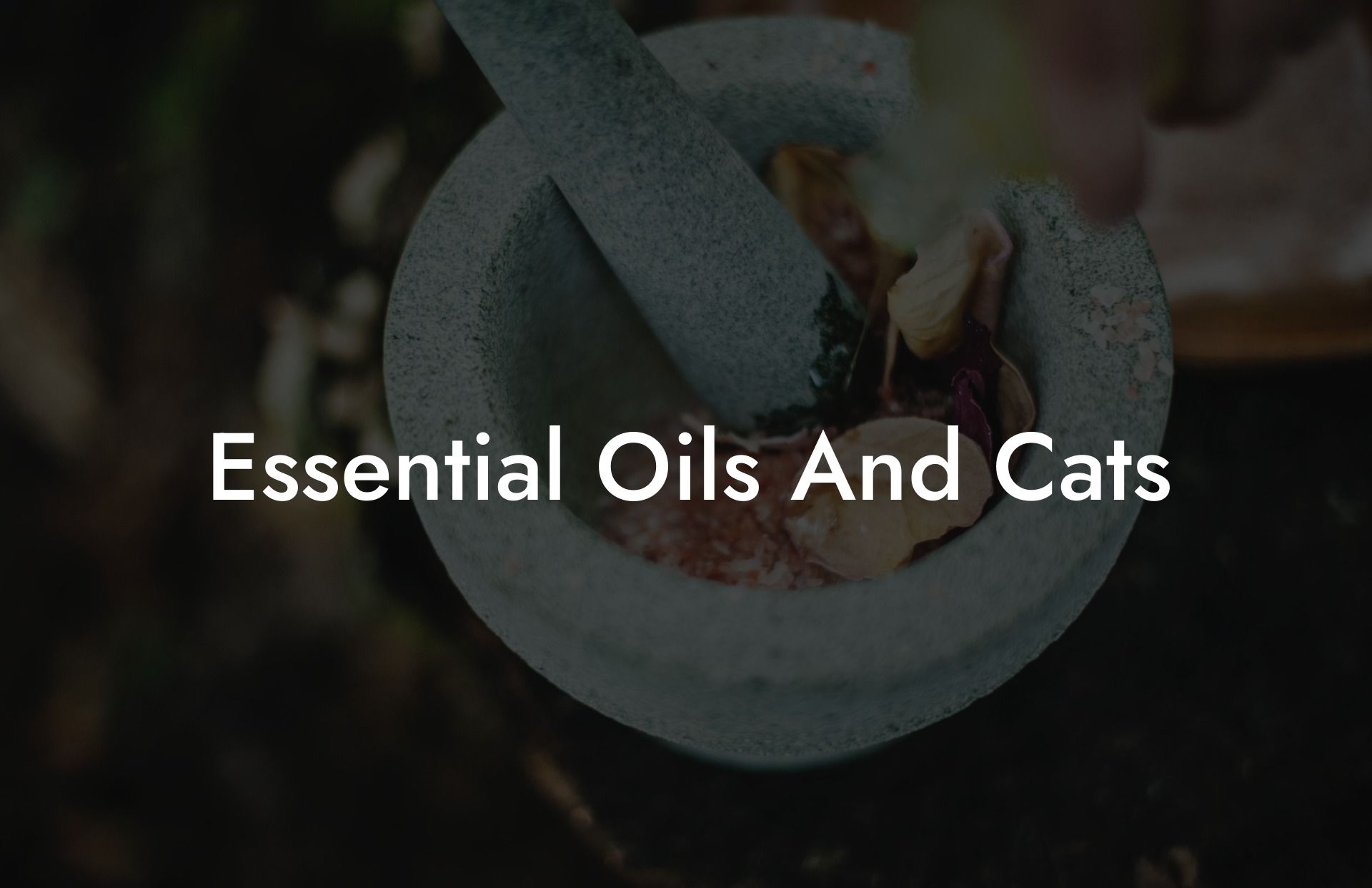Are you a cat lover who’s also into essential oils? While these fragrant natural remedies can offer plenty of benefits for humans, it’s essential to know how they can affect our feline friends. In this guide, we’ll delve into the world of essential oils and cats, discussing the potential risks, benefits, and how to use them safely around your furry companions.
Table of Contents
- Potential Risks of Essential Oils for Cats
- 1. Cats lack a specific enzyme in their livers
- 2. Cats have sensitive respiratory systems
- 3. Cats have a heightened sense of smell
- 1. Use high-quality, pure essential oils
- 2. Dilute essential oils properly
- 3. Keep your cat's environment in mind
- 4. Monitor your cat for signs of distress
- Essential Oils to Avoid Around Cats
- Safe Use of Essential Oils Around Cats
Potential Risks of Essential Oils for Cats
As much as we love our essential oils, it’s crucial to understand that cats have different sensitivities than humans. Some essential oils that pose no harm to us can be toxic to our feline friends. Here are a few reasons why certain oils can be dangerous for cats:
1. Cats lack a specific enzyme in their livers
Cats lack the enzyme glucuronyl transferase, which is responsible for breaking down many compounds, including some components of essential oils. As a result, cats’ bodies struggle to eliminate essential oil metabolites efficiently, leading to a higher risk of toxic build-up.
2. Cats have sensitive respiratory systems
Cats have a more sensitive respiratory system than humans, making them prone to adverse reactions from essential oil vapors. Inhaling strong scents can cause respiratory issues such as asthma symptoms or even respiratory distress.
3. Cats have a heightened sense of smell
Cats possess an extraordinary sense of smell, 14 times stronger than humans. Strong scents from essential oils can be overwhelming for them, causing stress and discomfort.
Essential Oils to Avoid Around Cats
Considering the potential risks, it is wise to avoid using the following essential oils around your cats:
- Tea Tree
- Cinnamon
- Eucalyptus
- Clove
- Lemon
- Lavender
- Pennyroyal
- Peppermint
- Wintergreen
These oils contain compounds that could be harmful to cats and may cause clinical signs such as vomiting, diarrhea, drooling, difficulty breathing, or in severe cases, liver damage or seizures.
Safe Use of Essential Oils Around Cats
While there are potential hazards, it doesn’t mean you need to banish essential oils entirely. Here are some tips for safely using essential oils around cats:
1. Use high-quality, pure essential oils
Adulterated or low-quality essential oils can create a higher risk for adverse reactions. Invest in high-quality, pure essential oils from reputable sources, such as Oshu Oils.
2. Dilute essential oils properly
Always ensure that you are diluting your essential oils correctly. Using a carrier oil or diffusing essential oils in a well-ventilated room can make a significant difference in minimizing the risk for your cat.
3. Keep your cat’s environment in mind
Use essential oils in a room with good air circulation, and allow your cat the option to leave if it feels uncomfortable. Do not apply essential oils directly onto your cat’s fur or in proximity to their litter box or food and water dishes.
4. Monitor your cat for signs of distress
If introducing essential oils into your home, be diligent in observing your cat for changes in behavior or symptoms of distress. If you notice any signs of discomfort, cease using the essential oils and consult your veterinarian.
Essential Oils And Cats Example:
Sarah decided to start using essential oils to help her relax after a long day at work. As a responsible cat owner, she researched and discovered which oils to avoid and how to use them safely around her furry friend, Mittens. She decided to diffuse lavender oil, even though it is listed as potentially hazardous. Sarah made sure to dilute the oil correctly, to use it in a well-ventilated room, and to monitor Mittens for signs of distress. If she noticed any negative reactions, Sarah would immediately stop using lavender oil and switch to a safer option for Mittens.
Now that you are armed with the knowledge of potential risks and safe usage practices for essential oils around your feline companions, you can enjoy the benefits of aromacology while ensuring your cats stay happy and healthy. Don’t forget to share this guide with fellow cat lovers and explore other essential oil guides on Oshu Oils. Visit our store to find high-quality, pure essential oils to enhance your wellbeing without compromising your cat’s health.





















